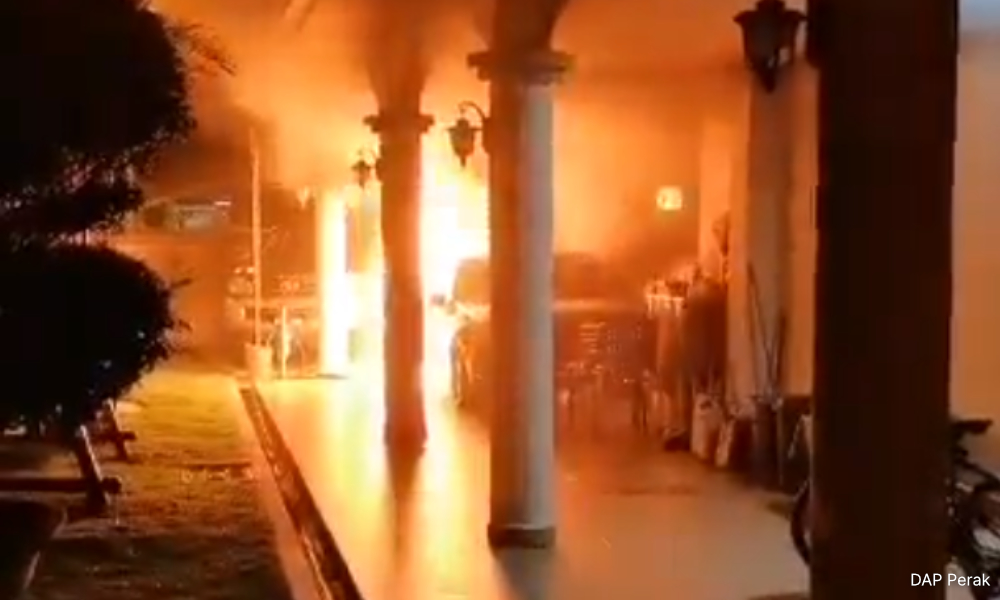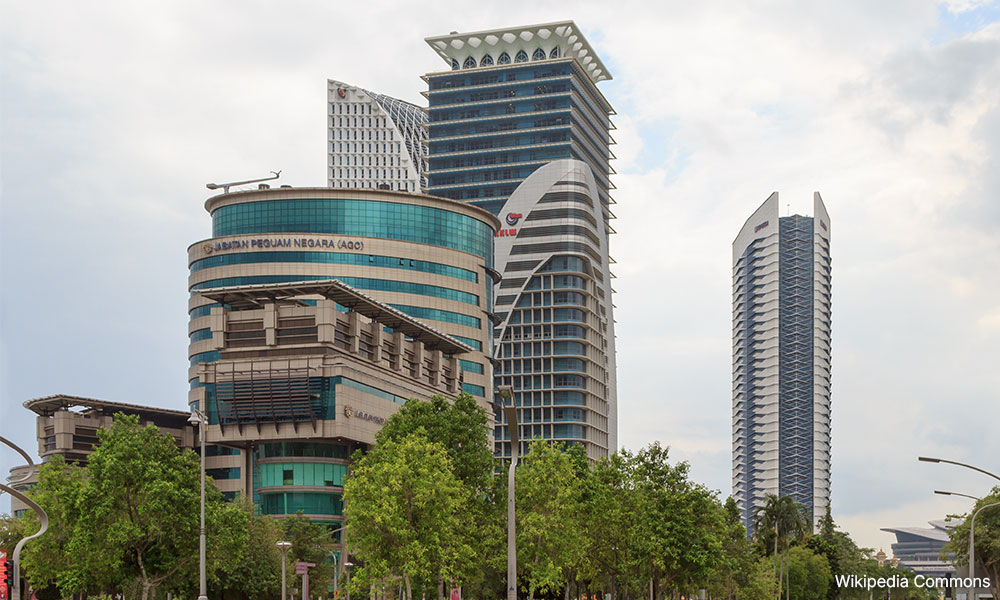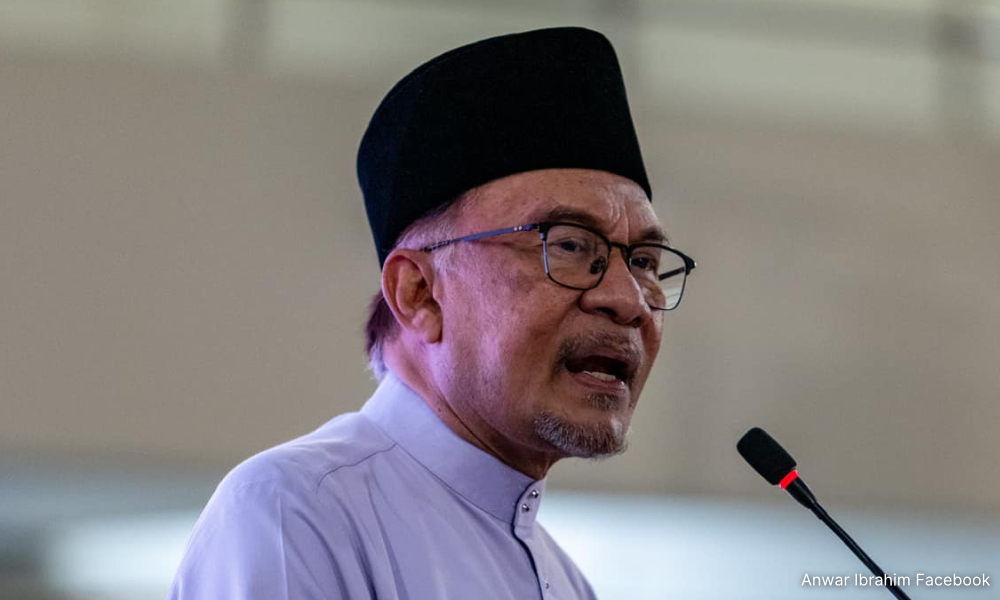Project Stability and Accountability for Malaysia (Projek Sama) calls for a three-pronged approach – counter framing, the rule of law, and an institutional mechanism – to manage, defuse, and prevent crises caused by ethnoreligious tensions such as the one surrounding KK Mart socks, which has seen three of its outlets suffering terrorist attacks.
Counter framing
First, there must be a counter-framing to effectively neutralise the escalating tension.
Ethno-religious agitators would seek every opportunity to maintain conspiracy theories that Malay Muslims are constantly offended by ethnic minorities, and that forgiveness is a sign of weakness.
They would not stop with KK Mart. After the convenience store, they would look for the next evidence that Muslims are offended.
The counter-framing, which is forgiveness, has to steal the thunder from the agitators.

Malaysia is blessed with Islam which teaches us to seek “maaf zahir batin” (forgiveness for all wrongs done, both actualised externally and kept internally) and to forgive others.
In the Malay Archipelago, “maaf zahir batin” is almost synonymous with Selamat Hari Raya.
Hence, seeking and extending forgiveness shows the greatness of Islam and the strength of Muslims, not weakness, which the agitators hope to frame.
Forgiveness and making amends are also heavily stressed by other faiths and cultures in Malaysia such as Buddhism, Christianity, Hinduism, Sikhism, Taoism/Confucianism, and the customs of Sabah and Sarawak natives.
You can even find these words of wisdom in a children’s book which quotes an unknown source: “The first to apologise is the bravest. The first to forgive is the strongest and the first to forget is the happiest.”
The book “Two sisters, one sarong” by Lorraine Yong is a recommended read for any adults in conflict.
Projek Sama is proud to be working alongside our civil society and media partners to make “maaf zahir batin” a practice 365 days a year, for ourselves to be better persons and for our society to be more resilient against agitations made to pursue political, business, and personal gains.
We hope all like-minded individuals, organisations, and institutions will join this organic movement of all Malaysians, by all Malaysians, and for all Malaysians, through statements and activities in their own creative initiatives.
Rule of law
Second, the rule of law must be upheld effectively. The police should go all out to investigate the suspects of domestic terrorism in the three Molotov cocktail bombings of three KK Mart outlets (Bidor, Kuantan, and Kuching) and the earlier bombing in Ayer Tawar, Perak (Jan 10) involving DAP MP Ngeh Koo Ham’s home which could have killed him and his wife in their sleep.
The serial attacks suggest that they are not random attempts of “mischief by fire” (Section 436 of the Penal Code, which carries a maximum jail term of 20 years), but “terrorist acts” - “with the intention of advancing a political, religious, or ideological cause” (Sections 130C of the Penal Code, read together with Section 130B, which imposes seven to 30 years of imprisonment).

The police should also pursue netizens who cheer for these bombings. They should utilise Section 130G of the Penal Code which makes it an offence for inciting, promoting, or soliciting property for terrorist acts.
Offences under this section carry a maximum jail term of 30 years. Conviction of any suspect under Sections 130C and 130G, together with Section 130B of the Penal Code, would send a clear message that there is no ‘selective lawlessness,’ as aptly called out by Tuaran MP Wilfred Madius Tangau.
This would immediately deescalate the atmosphere. We are puzzled by the police’s inaction or inability to act.
And we disagree with the “arrest” for investigation under the Sedition Act (which Prime Minister Anwar Ibrahim eagerly denied) of Umno Youth Chief Dr Muhamad Akmal Saleh.
We are not surprised at all that it appears more like a calculated political gesture to pacify peace-loving Malaysians.
Politically, unless the Attorney General’s Chambers (AGC) is free from the executive’s control, agitators from within the government will likely not be charged even if they are arrested by the police.

Principally, we disagree with the call to charge anyone under the Sedition Act which is ambiguous in defining seditious tendency, is convenient for exercising double standards, and is, therefore, draconian.
The law should be enforced to punish and stop actual harm and only when they expressly instigate violence and harm.
Institutional mechanism
Thirdly, we need a multi-partisan, cross-ministry mechanism to manage, defuse, and prevent ethno-religious tensions.
The KK Mart crisis got out of hand primarily because of the initial silence of the prime minister and the inaction of his ministers - including National Unity Minister Aaron Ago Dagang, Minister in the Prime Minister’s Department (Religious Affairs) Mohd Na’im Mokhtar, Home Minister Saifuddin Nasution Ismail, and Communications Minister Fahmi Fadzil.
While the national leadership of Perikatan Nasional also did not speak up against the agitation by Akmal, they at least exercised restraint by not joining his bandwagon of ethnic outbidding.
To prevent and stop future crises, Anwar should form a Federal Council on Inter-Communal Relations chaired by himself, with the parliamentary opposition leader, Sarawak premier, and Sabah chief minister as the vice chairs, and both the national unity minister and the de factor Religious Affairs minister as joint executive directors to run its “war room” to constantly monitor the public mood and to offer timely interventions.

Other members should include the home minister, communications minister, and other ministers deemed necessary – including backbenchers and opposition shadow ministers.
A cross-ministry setup would allow better coordination while a multipartisan decision-making process would bind all major parties within the government and opposition from exploiting any ethno-religious disputes to their advantage. Similar councils should be set up at the state level. -Mkini
The views expressed here are those of the author/contributor and do not necessarily represent the views of MMKtT.




No comments:
Post a Comment
Note: Only a member of this blog may post a comment.